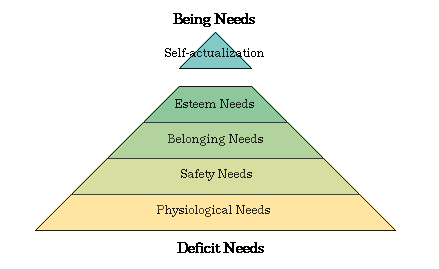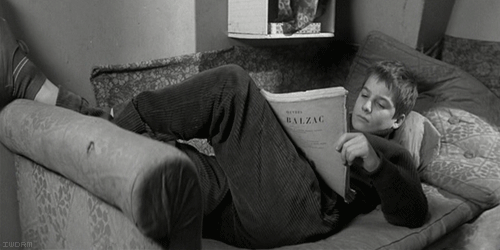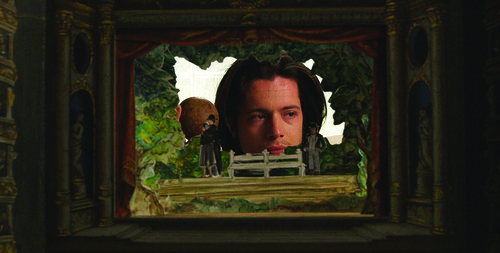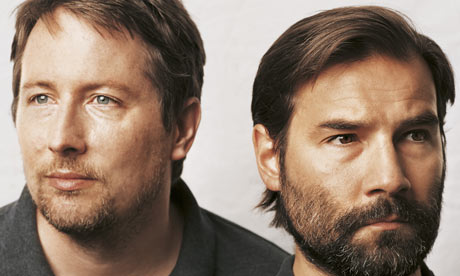
A potentially subliminal nod to the release of von Trier's new film about being depressed and welcoming the end of the world, I've decided to tackle that elusive thing Americans aggressively pursue as part of their constitutional rights (even if it is seemingly reserved for "job creators"): Happiness.
What I am going to say about happiness (and its measurement), is hopefully more nuanced.
When asking research participants to report on their happiness, researchers usually provide at best a vague frame (‘In general…’). Judgements are still relative, and people presumably make a comparison between what they believe about themselves and what they believe about other people who are in their immediate vicinity or who are otherwise relevant. This may explain a pervasive finding, that most people rate themselves as somewhat above the midpoint of a happiness scale, whether they are multimillionaires in the United States (Diener et al., 1985) or homeless prostitutes in Calcutta (Biswas-Diener & Diener, 2001). These findings are usually presented as showing that ‘most people are happy’, but another way to describe them is to say that ‘most people judge themselves to be happier than they think other people are’ (cf. Diener & Diener, 1998).

and the latter referring to, well, some kind of suburban middle-class conception of a successful, meaningful life, whose emotional benefits keep us feeling safe and smug long after the middle-age realisation that the finality of death renders these achievements null and void has set in:

Obviously I'm exaggerating by saying that eudaimonic well-being (so scientific sounding!) is a wholly White Anglo-Saxon Protestant concept, but just look at the definition given by UPenn's Authentic Happiness research centre:
"Eudaimonic pleasure...pursuing personal growth, development of their potential, achieving personal excellence, and contributing to the lives of others"
And sure enough, both Seligman and Maslow are big figures, not just in positive psychology but even mental health. Seligman's concept of Learned Helpessness has been applied to models of depression within a behavioural psychology context, i.e. we face the world as autonomous rational individuals seeking to assert our agency, then seemingly insurmountable obstacles are gradually put in our way, and finally we are slowly beaten into despondency and hopelessness by life's cruel happy slapping.
Similarly Maslow's hierarchy of needs feeds into models of Recovery and Well-being in mental health. I recently went for a volunteer training day at Oxfordshire Mind and the organisers actually wrote out the hierarchy of needs on a white board to illustrate their view of Well-being...
What becomes evident is that throughout the literature and theories regarding happiness and well-being there lies the ever-present assumption that the self is the ultimate locus of all development and pleasure (even if helping others is valued as a self-actualising trait).
Where's the sense of community people? As George Costanza put it:
Not that I'm terribly self-sacrificing myself... But I certainly have a healthy aversion towards embracing the radical individualism that emerged in the West during the latter half of the 20th century.
Of course, individualism, particularly the concept of rational autonomy, is an older concept derived primarily from the Enlightenment philosophers (such as Kant), but it arguably found its scientific justification and mass adoption in the form of Nobel Prize winning Mathematician John Nash's Game Theory.
You remember who John Nash is right? Lovingly played by Mr. Rufty Tufty man Rusty Crowe in A Beautiful Mind? Yeah, apparently John Nash was kind of a dick in real life, and crucially a paranoid schizophrenic...
Adam Curtis' documentary The Trap tells his story beautifully; how Nash came up with an equation proving that given the option to keep what you have or to opt-in and run the risk of betrayal, the only rational solution is to be selfish.
This is best illustrated by the prisonner's dilemma:
Nash called it the "Fuck You, Buddy" game. Can you see why?
His paranoid self-interest proved enormously fashionable at a time when it really felt as though two world super-powers could blow each other up at any moment.
His work has had a profound effect on the Western world, along with Ayn Rand's philosophical justification of selfishness, giving impetus to the gradual domination of neorealism in international relations theory, neoliberalism in economic policy, and libertarianism in political philosophy.
Crucially for my story however, game theory has also had a huge influence on cognitive behavioural psychology in terms of what we think motivates us, what the targets of therapy are, and of course, what we think makes us happy...
Of course, I do realise the irony in that I began this long ramble explaining how happiness research has actually begun to lead us away from the cold financial incentives of yester-year's yuppies towards the more holistic, positive reinforcement motivators of today's behavioural economists, but nonetheless the focus on the self as an autonomous willful being trying to achieve its full potential still shines through:
Note that Bradley Cooper is fairly WASPy looking...
So what does this mean? That happiness is being Barney Stinson?

Well, not quite. What it means is that we've defined Happiness through the prism of Western liberal individualism, divorced from any political or economic context and thus rendering Happiness frustratingly dependent on the choices we make and not much else.
You see, we live in a "Post-ideological age" (or The End of History, if your name is Francis Fukuyama), whereby all other systems of government have failed and liberal capitalism is now the default background, a rational structuring of society that is pragmatic and objective, and thus requires no ideology. And since capitalism offers a level playing field, what is life and well-being but a series of rational choices that we must bear responsibility for?
Now, yes, this isn't true, and yes, we live in an apparently free society, and really our choices are undermined by economic and social inequalities, so that in effect our choices amount to superficial distinctions between market led options. But, going beyond this Marxist cliche, we are also presented with the pain of being burdened with an excess of choice whilst feeling that we don't have the proper knowledge to make the right ones:
In the "Marxist" version of this theme, the multiplicity of choices with which the market bombards us only serves to obfuscate the absence of any really radical choice concerning the fundamental structure of our society. There is, however, a feature conspicuously missing from this series: namely, the injunction to choose when we lack the basic cognitive coordinates needed to make a rational choice. As Leonardo Padura puts it: "It is horrific not to know the past and yet be able to impact on the future" ; being compelled to make decisions in a situation which remains opaque is our basic condition. We know the standard situation of the forced choice in which I am free to choose on condition that I make the right choice, so that the only thing left for me to do is make the empty gesture of pretending to accomplish freely what expert knowledge has imposed upon me. But what if, on the contrary, the choice really is free and, for this very reason, is experienced as even more frustrating? We thus find ourselves constantly in the position of having to decide about matters that will fundamentally affect our lives, but without a proper foundation in knowledge. To quote John Gray again: "we have been thrown into a time in which
everything is provisional. New technologies alter our lives daily. The traditions of the past cannot be retrieved. At the same time we have little idea of what the future will bring. We are forced to live as if we were free" - Zizek, First as Tragedy, Then as Farce
Hence we feel the need to turn to "wise" gurus that can help us make better choices and assert our finely crafted "selves" onto the world. Here's a delightful quote (conveniently found in the Wikipedia page for Self-Help):
The conservative turn of the neoliberal decades also meant a decline in traditional political activism, and increasing "social isolation; Twelve-Step recovery groups were one context in which individuals sought a sense of community...yet another symptom of the psychologizing of the personal"[15] to more radical critics. Indeed, "some social theorist[sic] have argued that the late-20th century preoccupation with the self serves as a tool of social control: soothing political unrest...[for] one's own pursuit of self-invention."D'ya geddit? Basically, by abstracting psychological and personal problems from their socio-political context and re-situating them within the self, the burdern falls to the individual to take responsibility for their lack of agency and happiness. This is then propped up by a self-perpetuating industry of self-help books, support groups, and New Age spirituality workshops emphasising self-development and healing. Just look at the current Conservative Government's attempts to take the nation's temperature by measuring Happiness...
But hey, who am I to judge. I believe in positivistic, evidence-based approaches to the study of human behaviour. Surely in principle there's nothing wrong with wanting to measure what makes people happy, and then trying to encourage an evidence-based approach to policy-making that maximises a country's happiness?
Perhaps we can simply, through the application of scientific methods, find the neural and genetic signatures of happiness and organise our society around that to create an objective social morality that would be one-size-fits-all. At least, this is what atheist extraordinaire Sam Harris believes. Brave New World anyone?
If you've actually made it this far, I salute you. This is probably too much for anyone on the internets to ever read, so I'll break here and rejoin this topic in PART DEUX!
























